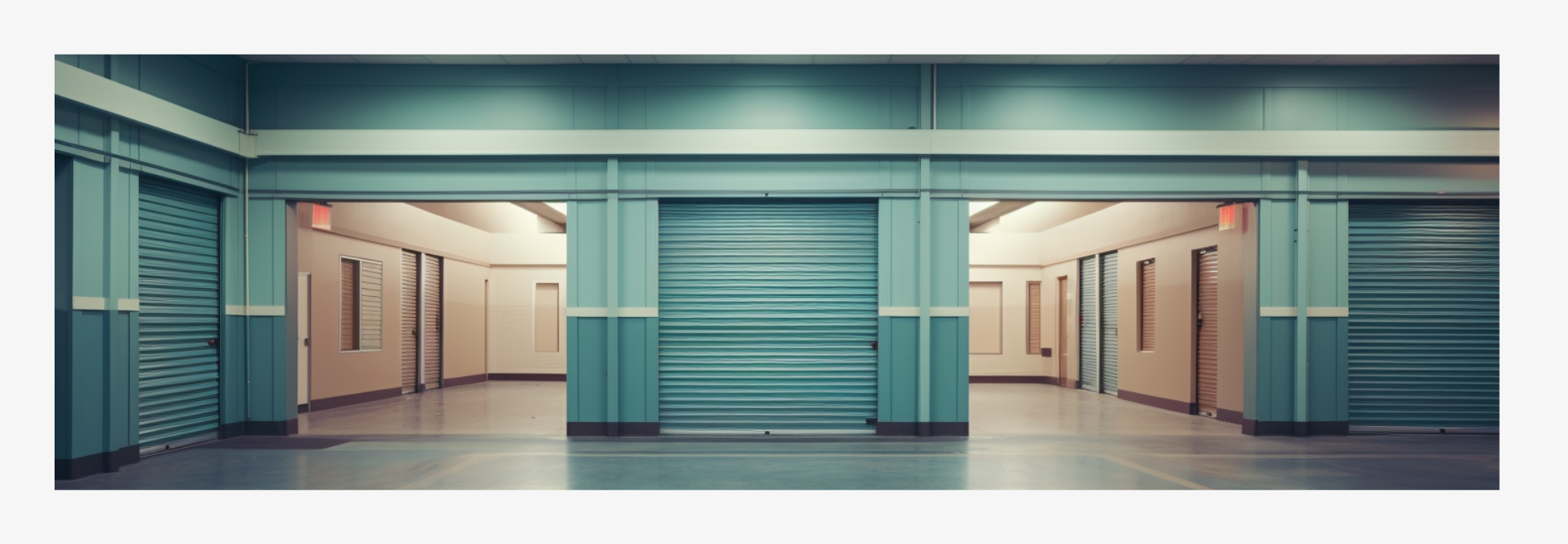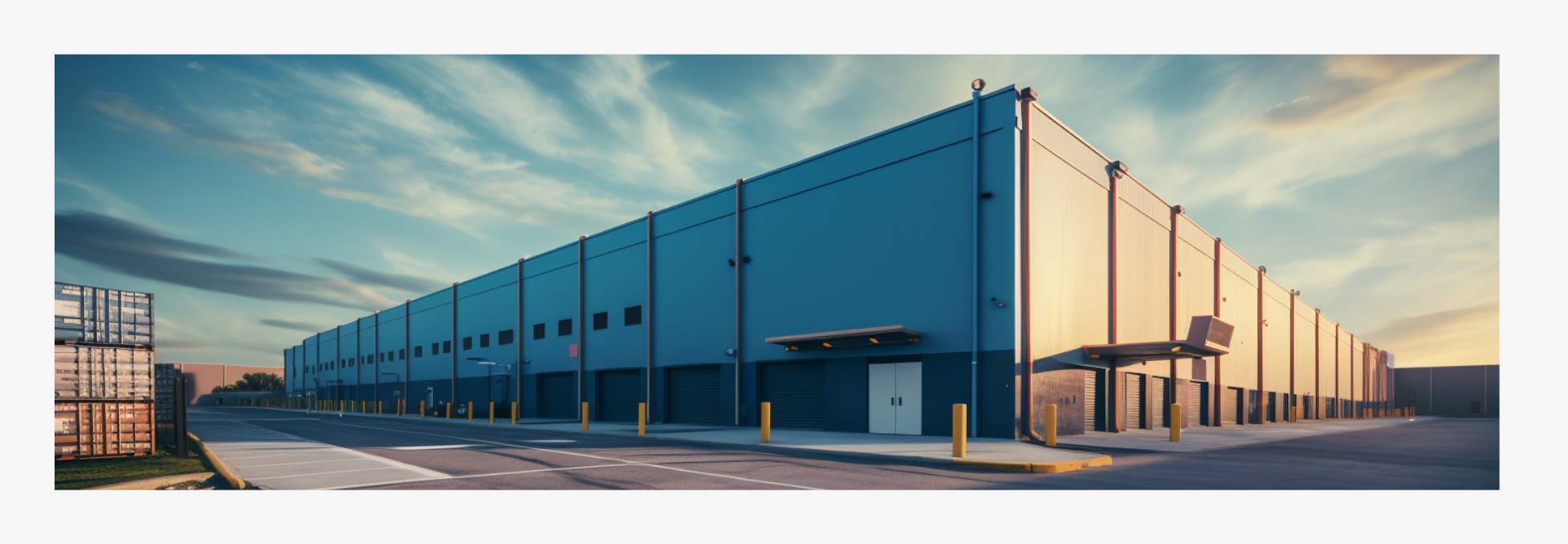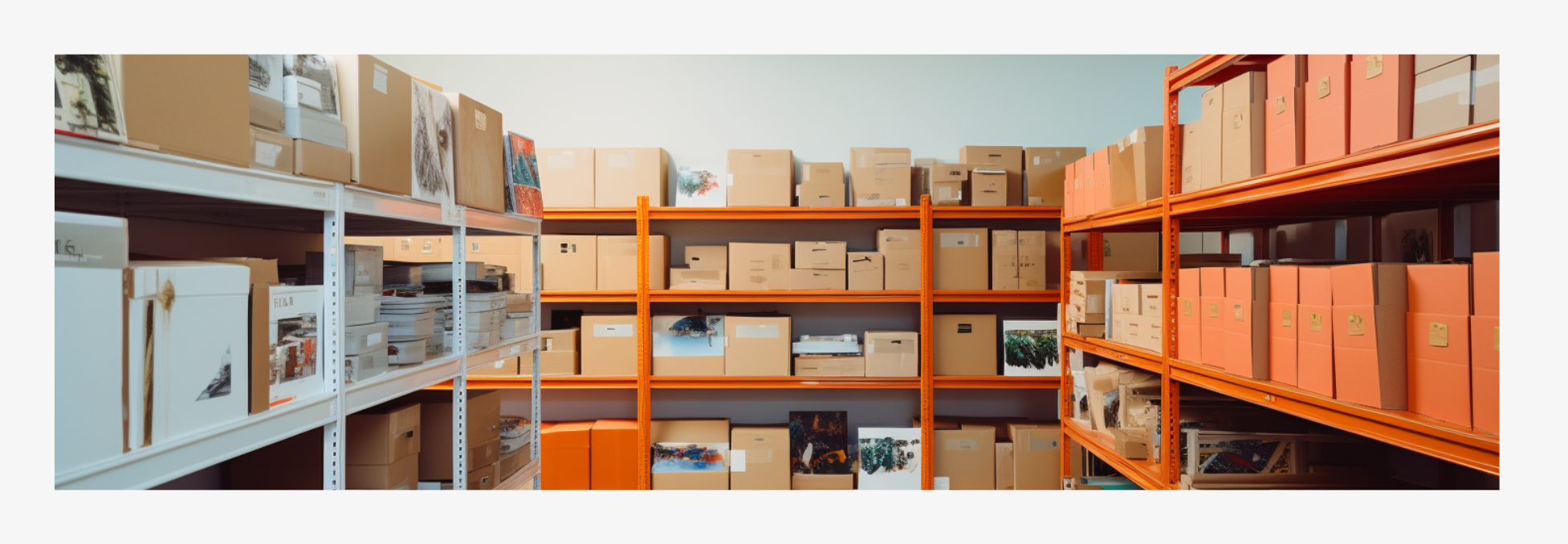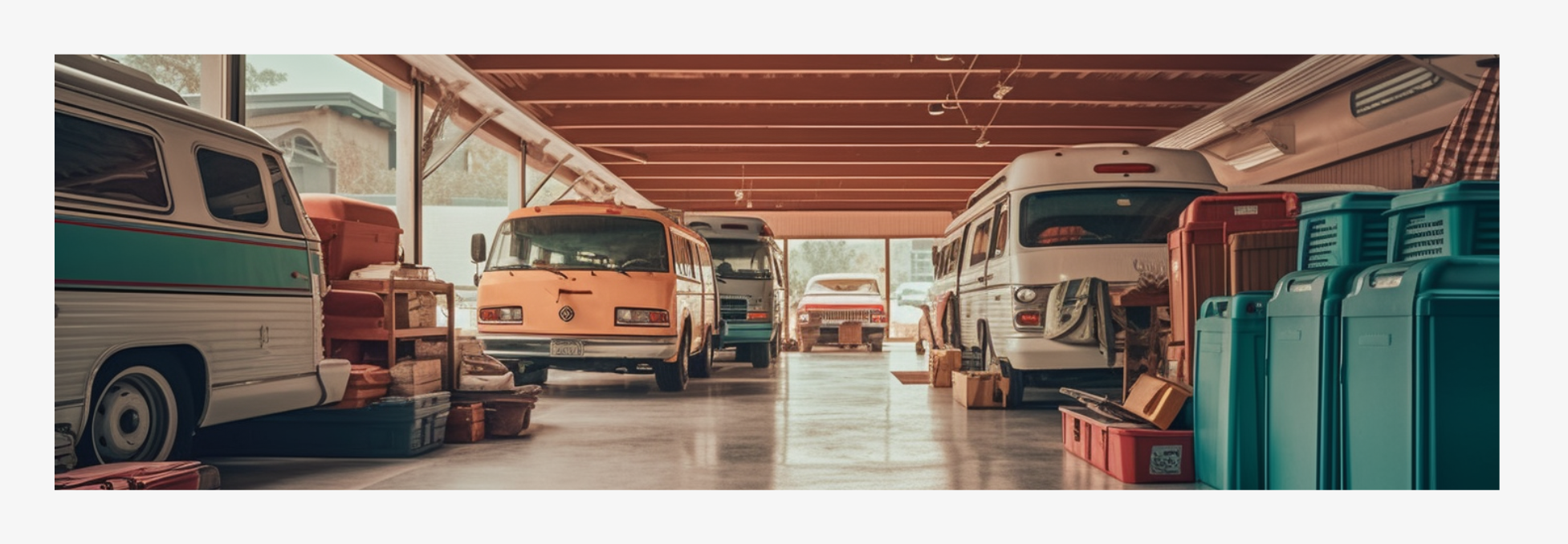There are many different types of storage out there.
When you’re building a facility, buying an existing storage business, or expanding the one you already have, it’s important to know what kind of storage you want to build!
What you should have really comes down to your customers and your business. Not every storage facility should have the same exact unit mix or additional storage types.
In this post, we’ll cover the different storage types out there to help give you some ideas!
Storage Types Can Overlap
Before we dive in, let’s talk about how storage types overlap.
Multiple storage unit types we list here might use the same exact type of storage unit. We list them separately to emphasize the differences beyond construction.
For example, a 10x5 climate-controlled storage unit can be just as useful to a business as it is to anyone else, but the approach to marketing toward the different customer bases varies.
To help, we’ve organized storage types in two different ways. We’ll talk first about form and second about function!

Form: Different Types of Storage Units
Drive-Up Access Storage Units
These are among the most common types of storage units available.
A drive-up storage unit is an outdoor access unit that has enough space for you to pull your vehicle up to the unit’s door. This makes it easier for customers to load or unload items.
These units are sometimes also called “outdoor storage units.” But it’s important to note there are ways you can have drive-up units that are indoors.
These storage units may or may not have climate control. What’s important here is that you are able to pull a vehicle up to the unit.
The most convenient drive-up units have roll-up doors and enough space in the aisle to accommodate a moving truck.
Climate-Controlled Storage Units
Building a climate-controlled storage unit costs a little bit more, but it also generally receives a higher monthly rate.
There is a lot of debate about what a climate-controlled storage unit is. You can check out this post about what climate-controlled storage is and the ways people talk about it for the full breakdown.
For the purposes of this article, just know that your customers will generally expect a climate-controlled storage unit to protect their items against extreme temperatures AND humidity.
Temperature-Controlled Units
A temperature-controlled storage unit isn’t that different from a climate-controlled unit.
In fact, some operators even call them the same thing.
For the purposes of this list, we’re separating the two. While your customers might expect climate control to cover both heat and humidity, temperature-controlled storage units are only expected to keep regulated temperatures.
Smart Units
Smart self storage units are all the rage in the last few years.
What a smart unit is is even more up to who you ask than climate control!
Here are some things a smart storage unit might include:
- Digital locks
- In-unit motion sensors
- In-unit cameras
- Individual alarms
- Mobile alerts
The pattern here is that smart units typically include more advanced security features protecting that unit specifically (rather than the facility at large).
The more in-unit security and the more connected that security is to a network—especially with its ability to alert the tenant or facility manager about activity—the “smarter” it is!
Storage Lockers
Lockers can be anywhere from small lockers the size of high school lockers to shorter 5x5 units.
Ultimately, a storage locker tends to be a smaller rentable unit that people use for personal items.
This might be used to store a small amount of items that don’t fit in an apartment or some kind of apparel that the tenant doesn’t want to keep at home.
They are also sometimes used by laborers who have just enough equipment to store that it justifies a storage unit but not a larger one.
Either way, if you call something a locker in your marketing, most people are going to expect a very small, personal-sized unit.
Drive-Through Storage

Unlike other storage types on this list, drive-through storage has more to do with the facility than individual units.
This type of storage allows customers to drive their vehicles into the building. Usually, it’s by way of a bay door or a tunnel. Once inside, they are able to load and unload items without concern for the weather!
In some cases, this may allow you to have indoor drive-up units. However, it’s also common for there to be a general loading area where customers bring their vehicles and then carry items to and from their units.
Warehouse Storage
Warehouse spaces can vary between actual large warehouses and extra large storage units.
It’s good to be as specific as possible when advertising warehouse space. List dimensions so that customers have fewer questions when they land on your website, for example.
In general, customers who search for warehouses intend to store either very large equipment or very many items inside.

Some amenities that can be a big bonus for warehouse storage include:
- In-warehouse lighting to illuminate the large space
- Remote-operated doors, largely due to the size of the doors required
- Shelving, with bonus points if it can be added/removed as requested
- Attached restrooms are a selling point for businesses
Function: How Units Are Used by Customers
Residential Storage
Residential customers usually aren’t going to be searching Google for the term “residential storage,” so this classification is purely for the industry to discuss.

Residential storage customers come in an exceptionally wide variety.
If you’re in a residential area or for any other reason believe that the majority of your customers will be residential customers, here are some reasons they may be storing with you:
- Moving to a new house
- Renovating their house
- Extra room for holiday items
- Storing heirlooms or other sentimental items
- Storing collectibles
- Overflow storage
- Storing bikes, kayaks, and so on
- Storing seasonal clothes
The list really goes on. There are so many reasons an individual or family might need a storage unit, and that’s why our industry sees so much demand!
What storage unit a residential customer needs will largely come down to what they’re storing, and feasibility studies or other local market data should be consulted on what unit mix to build for these customers!
Commercial Storage
Commercial storage refers to any business clients.
These tenants are generally more reliable. They’re more likely to follow the rules, more likely to pay on time, and more likely to rent larger units that cost more.
However, commercial tenants also generally have a stricter need for certain amenities.
Here are some examples of types of businesses that often benefit from storage (though virtually any business can!):
- Medical offices and institutions
- Contractors
- Local retailers
- Online retailers
- Marketing firms
- And many more!
These are some common examples we see needing commercial storage options, but the list goes on. Pretty much any business could find the need for a unit.
What kind of storage unit and amenities they need largely depends on their business, but here are some strong examples:
- Climate control
- Loading docks
- In-unit lights
- In-unit power
- Individual unit alarms
- 24/7 access
Contractor Storage
Contractors are one of the most common types of businesses that utilize storage units.
We felt the need to give them their own section to help characterize the needs of contractors.
Often, these business owners tend to run their businesses out of their trucks or from their kitchen tables. They get up early—usually before your office hours—and go home late.
They often store powered equipment. It could be landscaping equipment, gear for renovating homes, powered and non-powered tools, and more.
As such, there are three amenities that scream contractor-friendly:
- 24-hour access
- Power outlets
- In-unit lighting
If you intend to double down on contractor-friendly storage, consider these needs!
Document Storage

Both residential and commercial customers have a need for document storage. In fact, it's one of the major uses commercial tenants have for storage.
Storage units that are ideal for document storage are always climate-controlled. This helps keep paper records from damage due to poorly maintained humidity levels.
There is a very specific climate that is best for paper document storage: 65 to 72 °F with 40-50% humidity.
Storage units intended for document storage might also include shelving so that customers don’t need to stack the boxes and risk damage to the records should the boxes cave.
Wine Storage
Customers who need wine storage are usually (but not always) collectors and hobbyists.
For the best results and the fewest customer complaints, your wine storage units should be climate-controlled units kept around 55 °F and below 45% humidity.
Units with built-in shelves are also a boon to wine storage customers to allow them to store more bottles without needing to stack boxes.
Boat, Camper, & RV Storage Types
In addition to traditional storage units, there are also different types of vehicle storage you can offer at your storage facility.
These storage spaces can be used for everything from classic cars to boats to Class A RVs.

Uncovered Boat & RV Storage
When it comes to boat and RV storage, uncovered storage is the most basic and most common form.
If you have unused land on your facility’s property, allowing people to pay for permission to park their boats and RVs there is an easy way to bring in extra revenue without even having to build!
In general, concrete is the most desirable surface. If you’re able to provide a concrete lot for your boat and RV customers, you’re less likely to lose out on a rental due to the lot conditions.
Covered Boat & RV Storage
A covered space for boats, campers, RVs, and whatever other vehicles you allow to be stored there!
Covered vehicle storage spaces can come in many forms. Here are some examples:
- A simple canopy over the space
- A drive-through space with a roof and two walls
- A covered space with a roof, three walls, and no doors
Some RV and boat owners prefer a drive-through space, and some prefer the added protection of three walls. Many will be happy with a covered space at all.
Indoor Boat & RV Storage
Indoor vehicle storage spaces are fully enclosed.
There are three main ways this is done:
- A fully enclosed storage unit large enough to accommodate the vehicles (with a door)
- An indoor warehouse-type space where vehicles don’t have personal enclosed units
- Warehouses with powerful lifts able to transport vehicles to large shelves
As long as the vehicle has no exposure to the elements due to being entirely inside, you’ve achieved an indoor vehicle storage space for your customers!
Want to stay on top of your storage game in the face of tough competition? Check out these resources!
At StoragePug, we build self storage websites that make it easy for new customers to find you and easy for them to rent from you.










![[BASICS] 5 Minute Data & Reports for Self Storage Featured Image](https://cdn.storagepug.com/hubfs/%5BBASICS%5D%205%20Minute%20Data%20&%20Reports%20for%20Self%20Storage.png)

